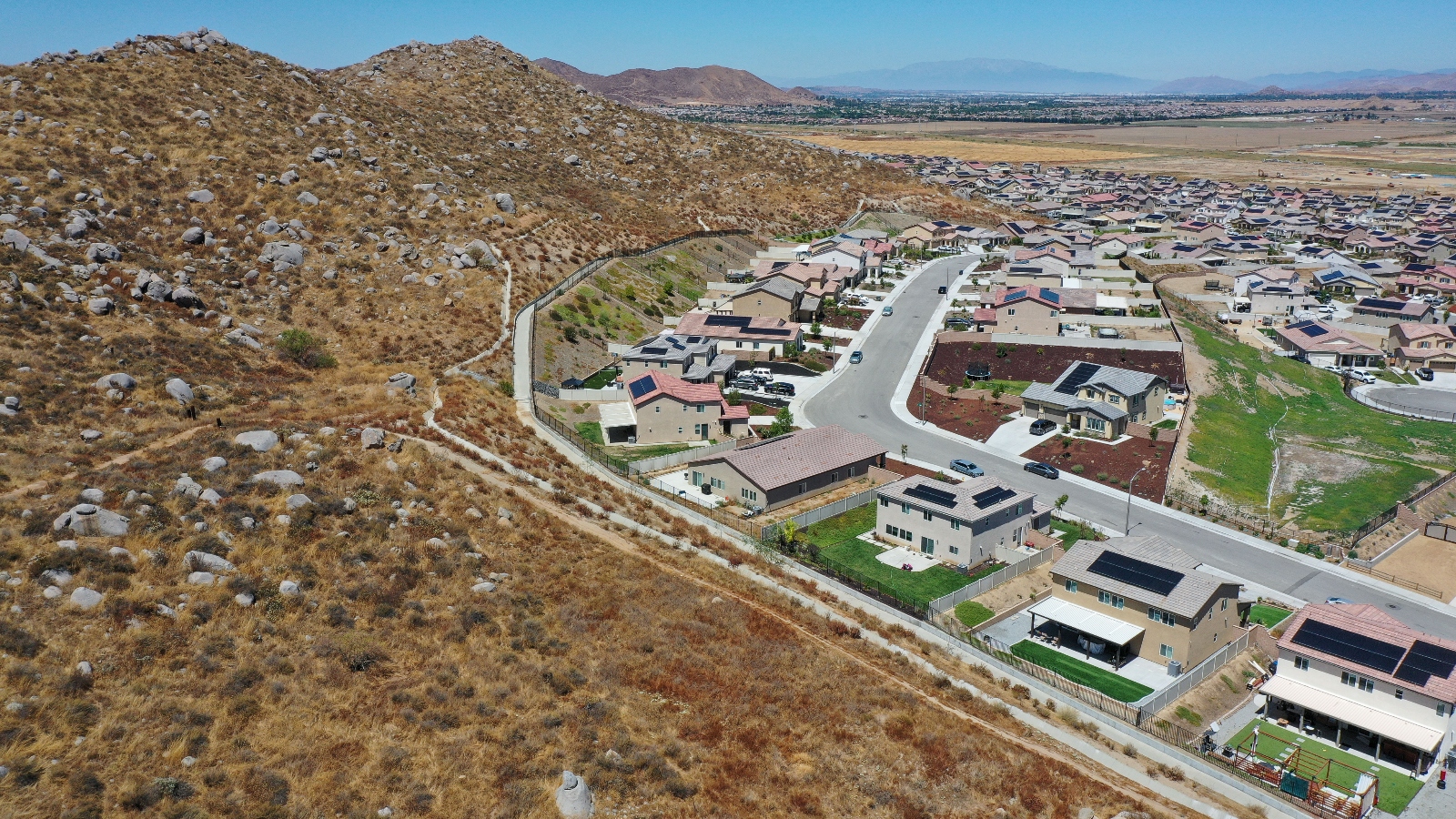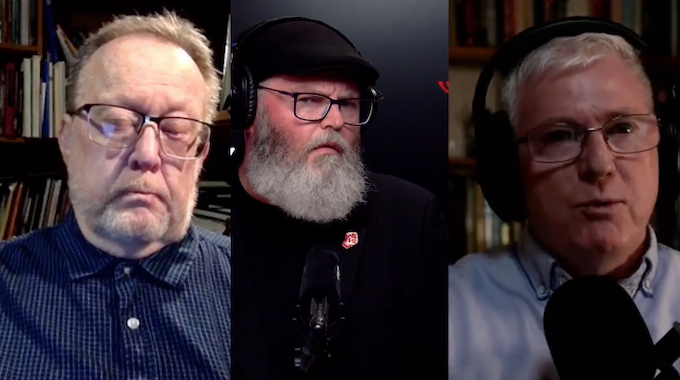by Lauren McGaughy, The Texas Newsroom
ProPublica is a nonprofit newsroom that investigates abuses of power. Sign up to receive our biggest stories as soon as they’re published.
This article is co-published with The Texas Newsroom and The Texas Tribune as part of an initiative to report on how power is wielded in Texas.
Elon Musk was pleading.
It was April 2013, and Musk stood at a podium in a small committee room in the basement of the Texas Capitol. The Tesla CEO asked the legislators gathered before him to change state law, allowing him to bypass the state’s powerful car dealership lobby and sell his electric vehicles directly to the public.
He painted a bleak picture of what could happen if they didn’t give him his way.
“We would, I’m afraid, we would fail,” Musk told the assembled representatives. “So for us, it’s a matter of life or death.”
Clad in a dark suit instead of his now ubiquitous black T-shirt and baseball hat, the younger Musk was unable to persuade lawmakers in Austin. That year, the bill he wanted to pass died.
More than a decade later, however, Musk’s fortunes inside the Texas Capitol have changed — dramatically.
Musk is now not only one of the richest people in the world, who, until recently, was a key member of President Donald Trump’s second administration, but he’s also become one of the most powerful business and political figures in the state.
During this year’s legislative session, Musk’s lobbyists and representatives publicly advocated for almost a dozen bills that would benefit his companies. The Texas Newsroom identified these priorities by searching legislative records for committee testimony and other evidence of his public stances.
Musk wanted legislators to pass new laws that would make it faster and easier for homeowners to install backup power generators, like the kind Tesla makes, on their properties. He wanted them to create new crimes so people who fly drones or interfere with operations at his rocket company SpaceX can be arrested. And he wanted to change who controlled the highway and public beach near SpaceX’s South Texas site so he can launch his rockets according to his timeline.
Musk got them all.
In a Capitol where the vast majority of bills fail to pass, all but three of Musk’s public priorities will become law. The two bills his lobbyists openly opposed are dead, including a measure that would have regulated autonomous vehicles.
Musk made gains even on bills he didn’t publicly endorse. Texas lawmakers followed the tech giant’s lead by rewriting the state’s corporate laws and creating a new office modeled after the Department of Government Efficiency, the controversial effort he led in the Trump administration to cut federal spending.
By all accounts, Musk’s influence was great enough that he did not have to formally address lawmakers in person this session to make the case for any of his priorities.
Critics said these new laws will hand Musk’s companies more cash, more power and more protection from scrutiny as his business footprint continues to expand across Texas.
“The real harm is the influence of a private company on the decisions made by government,” Cyrus Reed, the conservation director for the Sierra Club’s Lone Star Chapter, told The Texas Newsroom. The Sierra Club is part of a group suing the state over SpaceX’s activities in South Texas.
Musk and his representatives did not respond to requests for an interview. He recently ended his run with DOGE, and his relationship with Trump has increasingly frayed.
Contrary to his slash-and-burn tactics in Washington, D.C., where he bulldozed his way onto the scene after Trump’s reelection, Musk has played the long game to amass power in Texas. He still hasn’t succeeded in changing Texas law to allow for Tesla direct sales, but that hasn’t stopped him from steadily investing his personal and professional capital in the state over more than a decade. Most of his businesses, including the tunneling firm The Boring Company, social media giant X and Tesla, are now headquartered here. While it’s still based in California, SpaceX operates production, testing and launch sites across Texas.
Musk has also moved his personal home to the state, reportedly securing properties in the Austin area and South Texas.
In the Texas Capitol, Musk’s power is subtle but undeniable.
Calendars and emails obtained by The Texas Newsroom through public information requests show his company’s representatives met regularly with lawmakers backing his priority bills and invited Lt. Gov. Dan Patrick to tour SpaceX. Patrick, who leads the state Senate, also penned a letter to the Federal Aviation Administration supporting the rocket company’s request to increase its launches in South Texas.
Texas politics, with its long history of outsize characters, has never seen the likes of Musk, said Rice University political scientist Mark Jones.
“Even in the heyday of the [George W.] Bush era, you couldn’t find somebody who had such dramatic wealth as Musk, who also had the same level of access and business interests here in Texas,” Jones told The Texas Newsroom. “Today, Elon Musk is arguably the most powerful and influential private citizen in the country.”
A mural of Elon Musk in downtown Brownsville, Texas
(Michael Gonzalez for KUT News)
“It’s All to Help Elon”
When lawmakers convened their 2025 legislative session in January, one of Musk’s top priorities was quickly clear. He wanted more control over the area around SpaceX’s launch site in South Texas.
Known as Starbase, the massive rocket testing and launch facility has come to dominate the small rural area between Brownsville, on the border, and the Gulf of Mexico. It is the launch site for Starship, the rocket meant to eventually take humans to Mars and the heart of Musk’s mission to make humans a multiplanetary species. The FAA recently gave SpaceX permission to increase Starship launches fivefold.
Although SpaceX owns most of the land around Starbase, county officials retained the authority over access to the adjacent public beach, called Boca Chica. The county worked closely with SpaceX to ensure the area was cleared ahead of launches, but the company’s leaders did not have ultimate control over the process.
That changed this year. First, Musk decided to incorporate the launch site as its own city. That happened on May 3, when the few residents who live in the area — most of whom The Texas Newsroom determined work for SpaceX — voted to create the new city of Starbase.
Musk then wanted state lawmakers to hand the new city the power to close Boca Chica Beach and the adjoining public highway during the week, a change the county officials opposed.
State Sen. Adam Hinojosa, a newly elected Republican who represents the area, authored the legislation to shift control to Starbase. Dozens of SpaceX employees got involved in the effort, submitting pages of identical comments to lawmakers in support.
Democrats succeeded in killing Hinojosa’s bill, prompting local activists to celebrate. Their victory was short-lived. Late in the session, lawmakers decided instead to shift some of this power to the Texas Space Commission, which facilitates the state’s space exploration agenda.
The new law states that the commission’s board can close highways and gulf beaches with the approval of a local municipality, which, in this case, is Starbase. SpaceX retains a connection to the commission itself: Kathy Lueders, who confirmed that she left her job as Starbase general manager last month, still sits on the Space Commission board. She directed additional questions to the commission.
The Space Commission declined to answer questions on SpaceX’s potential future involvement with these discussions.
“The way I view it is SpaceX wanted a certain amount of power,” said Reed, with the Sierra Club. “And at the end of the day, they didn’t quite get it, but they got something pretty close.”
The bill passed along largely partisan lines. Republican state Rep. Greg Bonnen, who authored the bill, did not respond to a request for comment about the role Starbase may play now that it will become law.
Lawmakers passed several more bills to benefit spaceports, the sites where spacecraft launch, like SpaceX.
While Texas is home to multiple spaceports, including Amazon founder Jeff Bezos’ Blue Origin, SpaceX dwarfs the rest in size and scope of influence across the state and country, boasting large federal government contracts and a growing satellite industry.
Hinojosa was an author or sponsor on most of these bills; he did not respond to multiple requests for an interview or comment for this story.
Other than the beach closure legislation, many passed with the support of Democrats.
At SpaceX’s urging, Texas lawmakers passed a measure to ban drones over spaceports. They also added spaceports to the state’s “critical infrastructure” facilities, which already include airports and military bases. The law will make it a felony to intentionally damage or interrupt the operation of any site where a spacecraft is tested or launched. Similar critical infrastructure laws have been used in other states to arrest people protesting oil and gas pipeline projects.
Bekah Hinojosa with the South Texas Environmental Justice Network, a local activist group, told The Texas Newsroom the new critical infrastructure law will let Musk “militarize our Boca Chica Beach for his dangerous rocket testing endeavors.”
The Sierra Club and other groups from South Texas, including a local Indigenous tribe, are suing the state, arguing that closing Boca Chica violates an amendment to the Texas Constitution that protects access to public beaches.
The General Land Office, the main defendant in that suit, declined to comment. In court filings, Texas Attorney General Ken Paxton argues the state can still regulate beach access for public safety reasons and that it cannot be sued in this case because it has immunity. The case is pending at the Texas Supreme Court.
A rally at Boca Chica Beach against the incorporation of Starbase on May 3
(Michael Gonzalez for KUT News)
Legislators also passed two more new laws that will shield companies like SpaceX from public scrutiny and legal challenges.
One will exempt certain military and aerospace issues from public meetings laws, allowing elected officials in some cases to discuss these topics behind closed doors. The proposal was so concerning to residents who live close to SpaceX’s facility near Waco, where locals say the company’s rocket testing has spooked livestock and damaged homes, that they submitted a dozen comments against it.
This law went into effect on May 15.
Another new law will make it harder for crew members and certain other employees to sue space flight companies. This, like most new legislation approved this session, will become law on Sept. 1.
SpaceX’s only significant public defeat during this year’s legislative session was the failure of a bill it supported to give spaceports a tax cut. The measure would have cost nearly $14.5 million over five years, according to an official estimate from the Legislative Budget Board.
Moriba Jah, a professor of aerospace engineering and engineering mechanics at the University of Texas at Austin, believes Texas is pandering to Musk.
“It’s all to help Elon,” said Jah, who added that his viewpoint is rooted in resisting policies that enable what he called “environmental plunder masked as ‘innovation.’” He has concerns that the state is investing in spaceports, most notably Musk’s, while carving out exceptions that prohibit public insight and input into what’s happening at those facilities.
“There’s this whole cloak of secrecy with whatever Elon is doing,” Jah said. “We will not and should not cease to launch satellites or explore space. But the way in which we do it matters a lot.”
“They Never Come Out of the Shadows”
This year, Tesla’s lobbyists publicly advocated against only two bills. Both died.
One was a GOP-authored proposal intended to create a buffer zone between homes and large-scale energy storage facilities like the kind Tesla sells.
The other bill would have imposed more regulations on the type of cars that Musk is rolling out as robotaxis in Texas, and would have required a public hearing if a collision involving an autonomous vehicle resulted in a fatality.
Bill author Rep. Terry Canales, an Edinburg Democrat, believes his legislation failed because it was not pro-industry enough.
“Tesla is the worst actor that I’ve ever dealt with in the Capitol. They’re subversive. They never come out of the shadows,” Canales told The Texas Newsroom. “Not only did I not hear from them, I didn’t expect to hear from them because that’s the way they operate.”
Lawmakers instead advanced a different bill, one with a lighter regulatory touch that was crafted with input from the autonomous vehicle industry.
It will require commercial operators, such as robotaxi and driverless big rig companies, to obtain authorization from the state. This approval can be revoked if the company’s vehicles endanger the public, including causing “serious bodily injury,” though it requires no public hearings in the case of a fatality, as Canales’ bill would have done. Autonomous vehicle companies will also have to develop plans for interacting with emergency responders.
Tesla took a neutral stance on the legislation. But the bill’s author, state Sen. Robert Nichols, R-Jacksonville, told The Texas Newsroom that Tesla’s team participated in work groups and stakeholder conversations with industry groups, trial lawyers and others.
Texas has been at the forefront of testing this technology for years, rolling out its first regulations in 2017. But with more autonomous vehicles hitting the streets, Nichols said it was time to clarify the rules and called his bill “a real opportunity here to actually improve safety.”
Nichols’ legislation initially died in the Texas House. But with less than a week before lawmakers packed up to go home, a House member added the entirety of Nichols’ bill as an amendment to another transportation bill, which will become law Sept. 1.
Tray Gober, a personal injury lawyer who handles vehicle crash cases in Austin, said it’s smart to get new regulations for autonomous vehicles on the books. But he worries that Texas is rushing to give its blessing to a technology that has not been fully tested.
“We’re not talking about rockets crashing into the ocean. We’re talking about cars crashing into other people,” he said, comparing Tesla to SpaceX. “There’s going to be people that are hurt during this process of improving these systems, and that’s unfortunate. I think it’s viewed as collateral damage by these companies.”
When asked about concerns that there could be fatalities as the number of driverless cars grows in Texas, Nichols said, “There probably will be. Eventually there will be. I would not doubt that.” But he pointed to studies showing autonomous vehicles are safer than human drivers.
“If you start looking at the breakdown of the fatalities on the roads and the crashes and the wrecks, what causes them? It’s not equipment failure. It’s driver distraction,” he told The Texas Newsroom.
Critics of these studies argue their scope is too narrow to make conclusions about the safety of self-driving technology. Citing safety concerns, some local lawmakers asked Tesla’s robotaxi rollout in Austin to be delayed. The company continued with the launch but with human monitors in the passenger seats.
Many Democrats opposed Nichols’ proposal. But at least three other bills affecting Tesla got bipartisan support.
At times, the Sierra Club was fighting against Musk’s SpaceX bills while working with his Tesla lobbyists on clean energy legislation, said Reed, the club’s conservation director. For example, Tesla and the Sierra Club both supported legislation to create new fire standards for battery energy storage facilities and address the environmental and financial challenges associated with decommissioning them.
Tesla also backed a bill that had bipartisan support to make it easier for homeowners to install backup power generators, such as the company’s Powerwall.
Reed said Musk’s shift to the right has created interesting bedfellows, sometimes making it easier for Republicans to back some of the energy policies more traditionally associated with progressives.
He remarked, “It’s an interesting time in our country, right?”
Musk’s Indirect Influence
A Tesla showroom in Austin on March 24
(Michael Minasi/KUT News)
For all the bills Musk pushed to see pass, he also indirectly influenced the creation of new laws on which he did not take a public stance.
Texas lawmakers created the state’s own DOGE office housed under the governor, the name an homage to Musk’s controversial federal cost-slashing effort in Washington, D.C.
Musk himself took no public role in creating the new office. But at a signing ceremony for the bill, Gov. Greg Abbott explained he was the inspiration.
Texas legislators also rewrote the state’s corporate laws after Musk raised concerns about business codes in other states. Authored by Republican state Sen. Bryan Hughes, the rewrite shields business leaders from lawsuits and establishes thresholds for the types of legal challenges shareholders can file.
Musk and his lobbyists never came out in support of the bill, but he has long complained that states needed to shore up protections for CEOs and other business leaders.
Musk began crusading on the issue after his $55 billion compensation package at Tesla was challenged in Delaware’s business courts. Musk moved many of his businesses elsewhere, including Texas, and publicly urged other companies to “get the hell out of Delaware.”
The legislation written in response was dubbed the “DExit” bill.
“Texas is much better than Delaware,” Musk posted on X in early April, just days after the bill passed the state Senate. “If Delaware doesn’t reform, it will lose all its corporate business.”
Last year, a Delaware judge ruled Musk’s pay package violated his fiduciary duties to the company’s stockholders. He won most of it back in a shareholder vote, but the judge again rejected his pay package in December.
In an interview, Hughes told The Texas Newsroom he heard input from different groups in crafting the Texas legislation and could not remember whether Musk’s companies were involved.
Abbott signed the DExit bill and a handful of other business bills into law on May 14. Standing behind him at a public ceremony marking the occasion were Hughes and a large group of business representatives.
Standing behind Hughes was a representative from Tesla.
Lauren McGaughy is a journalist with The Texas Newsroom, a collaboration among NPR and the public radio stations in Texas. She is based at KUT News in Austin. Reach her at lmcgaughy@kut.org. Sign up for KUT newsletters.
This post was originally published on ProPublica.


 BREAKING: Russia has officially signed the joint SCO statement, supporting Pakistan’s position over India.
BREAKING: Russia has officially signed the joint SCO statement, supporting Pakistan’s position over India. 


















